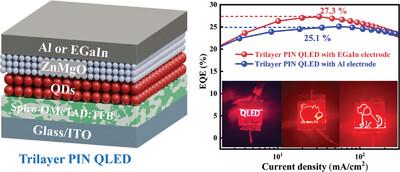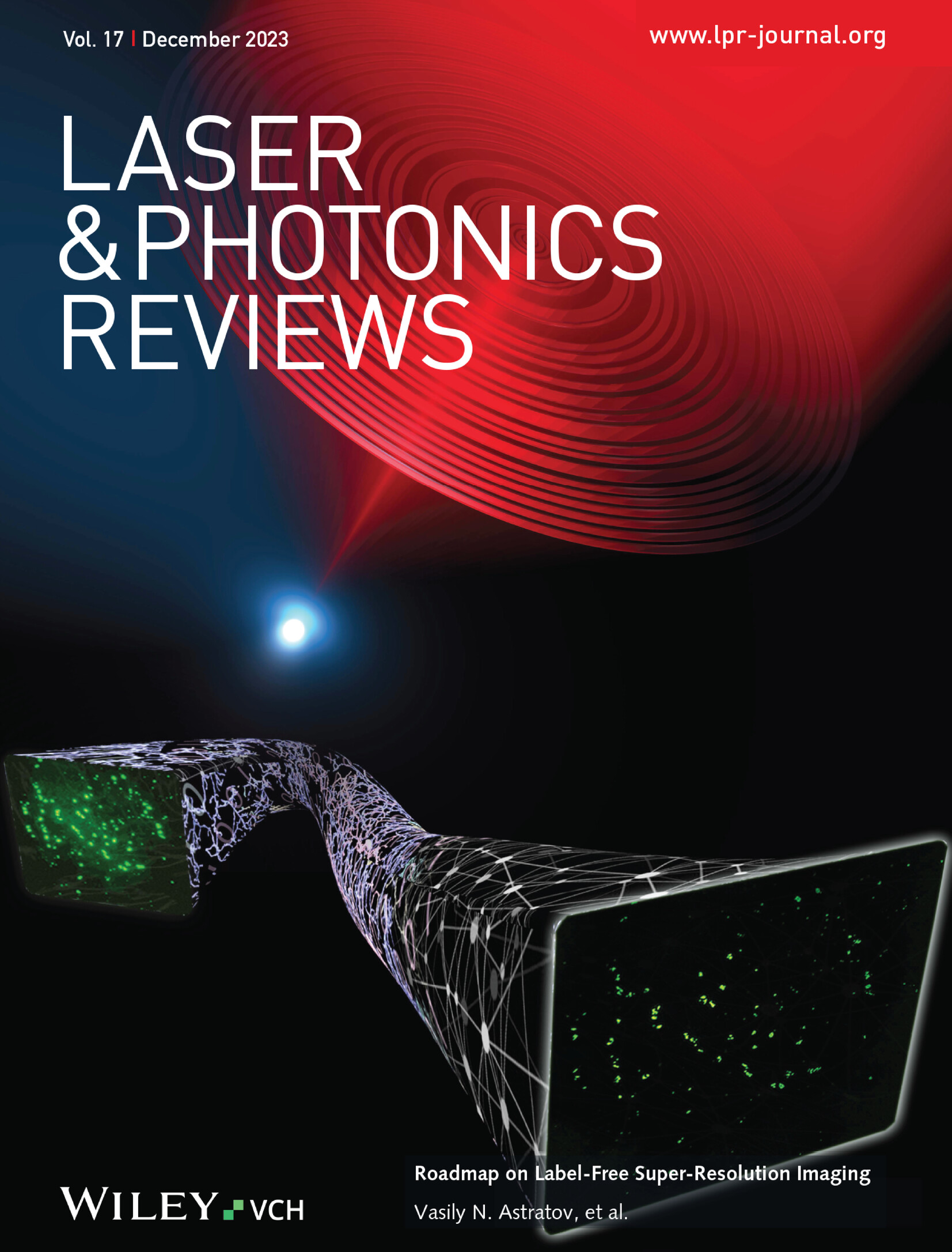Efficient and Stable Quantum-Dot Light-Emitting Diodes with Trilayer PIN Architecture
IF 9.8
1区 物理与天体物理
Q1 OPTICS
引用次数: 0
Abstract
Although the performance of quantum dot light-emitting diodes (QLEDs) has been greatly improved in recent years, the multilayer device structure has become increasingly complex, limiting the practical application of QLEDs. Here, a novel trilayer PIN QLED with only three functional layers, which are Spiro-OMeTAD:TFB bulk-heterojunction (BHJ) hole transport layer (HTL), quantum-dot emitting layer and ZnMgO electron transport layer is demonstrated. Due to the enhanced hole injection capability and suppressed electron leakage of Spiro-OMeTAD:TFB BHJ HTL, the trilayer PIN QLED can show an excellent external quantum efficiency (EQE) of 25.1% and an impressive brightness of 299300 cd m−2 at only 8 V, which are significantly higher than those of conventional QLED. Moreover, the device stability is also remarkably improved due to the mitigation of hole accumulation and removal of unstable PEDOT:PSS. By using liquid alloy EGaIn as cathode, a fully solution-processed vacuum-free trilayer PIN QLED with a higher EQE of 27.3% can be further realized. The developed trilayer PIN QLEDs, with better performance and fewer functional layers, can promote the commercialization of QLED technology.

采用三层 PIN 结构的高效稳定量子点发光二极管
尽管近年来量子点发光二极管(QLED)的性能有了很大提高,但多层器件结构却变得越来越复杂,限制了 QLED 的实际应用。本文展示了一种新型三层 PIN QLED,它只有三个功能层,分别是螺纹-OMeTAD:TFB 体外异质结(BHJ)空穴传输层(HTL)、量子点发射层和 ZnMgO 电子传输层。由于史派隆-OMeTAD:TFB BHJ HTL 增强了空穴注入能力并抑制了电子泄漏,三层 PIN QLED 的外部量子效率(EQE)达到了 25.1%,在 8 V 电压下亮度可达 299300 cd m-2,显著高于传统 QLED。此外,由于减少了空穴积累并去除了不稳定的 PEDOT:PSS,器件的稳定性也得到了显著提高。通过使用液态合金 EGaIn 作为阴极,进一步实现了全溶液工艺无真空三层 PIN QLED,其 EQE 高达 27.3%。所开发的三层 PIN QLED 性能更好,功能层更少,可促进 QLED 技术的商业化。
本文章由计算机程序翻译,如有差异,请以英文原文为准。
求助全文
约1分钟内获得全文
求助全文
来源期刊
CiteScore
14.20
自引率
5.50%
发文量
314
审稿时长
2 months
期刊介绍:
Laser & Photonics Reviews is a reputable journal that publishes high-quality Reviews, original Research Articles, and Perspectives in the field of photonics and optics. It covers both theoretical and experimental aspects, including recent groundbreaking research, specific advancements, and innovative applications.
As evidence of its impact and recognition, Laser & Photonics Reviews boasts a remarkable 2022 Impact Factor of 11.0, according to the Journal Citation Reports from Clarivate Analytics (2023). Moreover, it holds impressive rankings in the InCites Journal Citation Reports: in 2021, it was ranked 6th out of 101 in the field of Optics, 15th out of 161 in Applied Physics, and 12th out of 69 in Condensed Matter Physics.
The journal uses the ISSN numbers 1863-8880 for print and 1863-8899 for online publications.

 求助内容:
求助内容: 应助结果提醒方式:
应助结果提醒方式:


